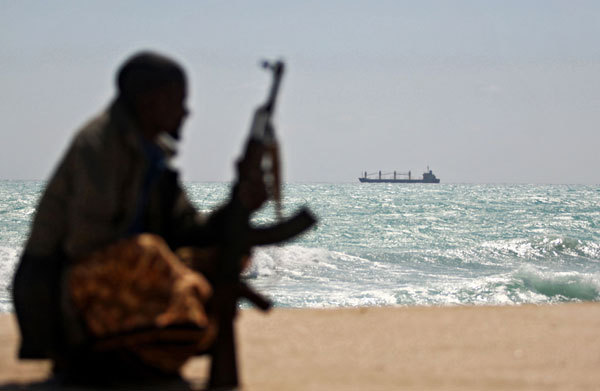Global General
Stark reality in a Somali community
By Hu Yinan (China Daily)
Updated: 2010-12-06 07:26
 |
Large Medium Small |
Refugees, who claim they suffer unemployment and prejudice in Kenya, are being pushed into the arms of radicals. Hu Yinan reports from Africa.
Feisal Farah Mohamed's dream is to obtain a university degree in medicine, have five or six children and move to China or Australia.
The idea of immigrating to the United States has never crossed the 19-year-old Somali's mind since, as he puts it, the popular Western portrayals of his people - most notably the 2001 Hollywood movie Black Hawk Down - are a world apart from his own.
However, living in Mandera, a town with few opportunities where violence lurks, Feisal is somberly aware his dreams may never materialize.
Decades have passed since Feisal's grandfather, like many others, crossed the border from Somalia to settle down in Kenya, although a Somali identity still resonates with hundreds of thousands of people in conservative communities throughout the African country's vast, dry and impoverished North Eastern Province.
Here, roads, jobs and safe drinking water practically do not exist.
The situation is severest in Mandera, just a mile south of the Somali border, where tensions have escalated in recent weeks. The United Nations has classified the town as a "phase-three security zone", one where no UN movement is permitted without armed escort.
Since 2008, the town government has imposed a daily curfew, from 9 pm until 5 am, as a result of ongoing clan clashes.
"During times of conflicts like these, sometimes we get 10 missing people reports a day. Some of them never show up again," said Isacko Jirma, Mandera coordinator for the Red Cross Society of Kenya.
A guard who identified himself only as Hussein at the office of the UN's High Commission for Refugees and World Food Program said the fact he is a Somali working for the UN makes him a target for bandits and fighters with Al-Shabaab, the radical Al-Qaida-linked Islamist group that has gained control over most parts of Somalia.
Spontaneous violence is a daily occurrence in Mandera, where virtually everyone is Somali.
At 1:32 pm on Nov 10, moments after a brief talk with China Daily, one of Hussein's colleagues radioed to report that unknown individuals had fired seven shots nearby. "I don't know what the intention was," said the voice over the walkie-talkie.
According to the US-based Foreign Policy magazine's last three annual indexes, Somalia has not had a functioning central government since civil war broke out in 1991. Even with the help of African Union peacekeepers, the Western-backed Somali government has struggled to control the few blocks of the capital, Mogadishu, that it actually rules.
In Somalia, Sharif Mohamed, 25, a corporate inspector who frequently travels to Mogadishu, said it is not at all surprising to find ordinary Somalis who distrust the government and, in turn, lean toward the other side.
"If you want to build the country, you have to build the people (and their trust)," he said, stressing that Somali officials are clearly "not doing their job".
